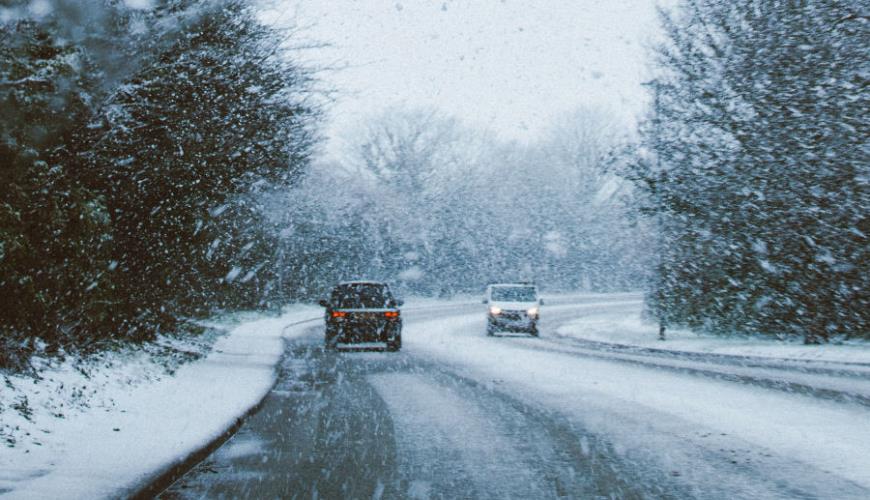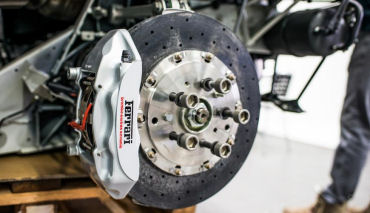- 707 Views
- 15 October 2022

Preparing for the daily commute during the winter months is something most motorists fail to do here in the UK.
Ensuring your vehicle is maintained well, especially during the colder months will ensure that you remain safe and your car is ready when the temps drop.
Below we share some useful tips to help you adapt during our unpredictable weather, although checking these things all year round is also important to ensure you are driving safely and legally.
Coolant / Antifreeze
To avoid your engine from freezing or overheating, ensure that the coolant /antifreeze level is topped up properly.
The coolant / antifreeze that you put in your engine serves a duel purpose. It prevents the water in the coolant system from freezing in the colder months, but also from evaporating whilst your engine is running by raising the boiling point.
Windscreen Wipers & Screenwash
Being able to see when driving is pretty important, right? So make sure when using your wipers that they are clearing your screen efficiently. Worn or dirty wiper rubbers will not work very well. If you have cleaned them but they still do not clear the screen as expected, it is time to get them replaced.
During winter, especially on frosty mornings, it would be sensible to check that they are not frozen to the windscreen before use to avoid causing any damage to the little motors that move the wipers across the screen.
Also, ensure that your screenwash is topped up sufficiently, so that when you need to use your wipers to clear the screen you are not caught out. There are many types of screenwash to choose from but during winter it would be smart to use a solution that is suitable for colder temperatures. With the wrong type of solution in your car, you will find that when you first start your car the screenwash could be frozen and this also could cause damage to the water pumps that spray the windscreen.
Lights
The winter period here in the UK creates a darker or lower visibility driving environment. Not only because it gets lighter later in the mornings and darker earlier in the evenings, but because of the weather.
Morning fog for example, especially when driving near fields will seriously lower the visibility on the road and ensuring that all your lights are working is important to ensure that the safety of yourself and other road users.
Before setting off on your journey, turn your lights on and do a quick walk round your car to check all the lights are working. If you use a reflected surface behind your car, you can easily check the brake and reversing lights too.
Tyres & Brakes
Between you and the road, your tyres are the only contact point so it is important that they are in good condition and suitable for the conditions they are used in.
Most people use a single set of tyres on the vehicles they drive all year round and if this is the case for you, ensure they are suitable for driving in all conditions. You can however, buy winter tyres which offer more efficiency during colder months, but with a good quality all round tyre you may not need to worry about swapping tyres out.
It is also important to make sure your tyres are inflated correctly. Tyres running underinflated can be damaged on the inside which could be dangerous if they are not replaced. Tyres will function less optimally if they are not correctly inflated, causing increased wear and less traction on the road.
When checking your tyres, also check the tread depths to make sure they are within the legal limit. This is not just a requirement for the sake of law, it is to ensure that your tyres have enough traction on the road so that they keep you where you are meant to be and also slow you down when you need to.
It is important to make sure your brakes are working and you can check they efficiently stop your vehicle by driving slowly and testing them. If in doubt, always get them checked by a professional.
During the winter months, icy roads are common and although modern cars now have braking systems to prevent your wheels from locking up during braking, it is wise to be extra vigilant when the temps drop and drive a little slower than usual. If caught out in an icy patch on the road and your vehicle starts to skid it is recommend to avoid using the brake and let off the accelerator so the engine can slow you down whilst you regain control from the skid.

What else can I do to remain safe whilst driving?
As well as keeping your vehicle maintained, you can remain safer on the roads with some simple common sense;
- Don't drive whilst you are tired
- Drive slower than usual, especially in colder weather
- Wet or icy roads mean it takes longer to stop